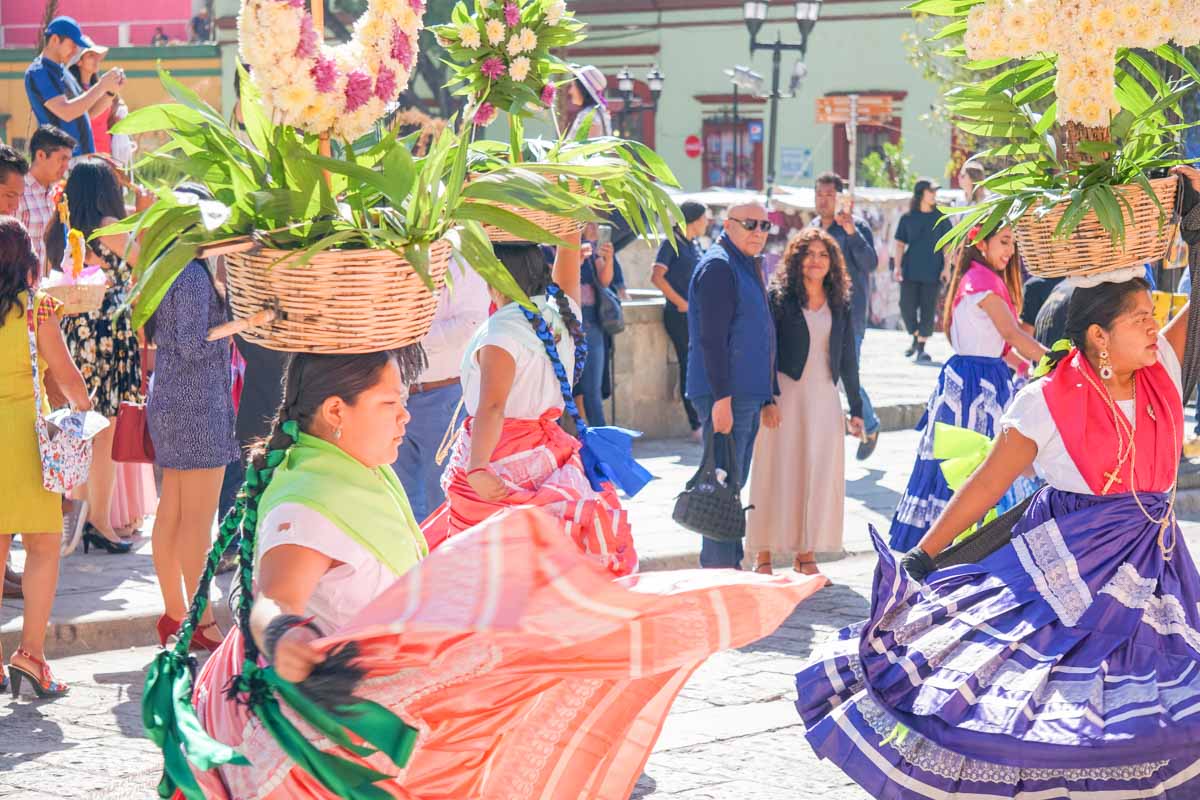Cultural Immersion in Zimbabwe: Tips and Tricks for New Zealand Tourists
Introduction
Overview of Zimbabwe's Culture
Zimbabwe, a country rich in cultural diversity and history, offers visitors a fascinating insight into its traditions, customs, and way of life. From vibrant music and dance to intricate arts and crafts, Zimbabwean culture is a tapestry of traditions that have been passed down through generations.
The people of Zimbabwe take pride in their cultural heritage, which is evident in their daily lives, celebrations, and interactions. Each tribe in Zimbabwe contributes unique elements to the country's diverse cultural landscape, creating a vibrant and dynamic society.
Comparison of New Zealand and Zimbabwe Cultures
When exploring the cultures of Zimbabwe and New Zealand, one can observe striking differences that showcase the diversity of our world. While both countries boast rich cultural identities, they are shaped by unique histories, landscapes, and traditions. Here are some key points of comparison between the two:
- Cultural Diversity: Zimbabwe's culture is influenced by various tribes and ethnic groups, while New Zealand's culture reflects a blend of Maori and European influences.
- Traditional Practices: Zimbabwe is known for its traditional music, dance, and artwork, whereas New Zealand celebrates Maori performing arts and traditional crafts like carving.
- Cuisine: Zimbabwean cuisine features dishes like Sadza and Nyama, while New Zealand is famous for its Maori hangi and seafood delicacies.
Exploring these differences can deepen your appreciation for the richness of global cultures and provide valuable insights into the unique traditions of both Zimbabwe and New Zealand.

Understanding Zimbabwean Etiquette
After delving into the rich culture of Zimbabwe, it's important to grasp the nuances of Zimbabwean etiquette to truly immerse yourself in the local way of life.
Greetings and Language
In Zimbabwe, greetings are essential and hold significant cultural value. When meeting someone, it's customary to greet them with a warm smile and a handshake. Here are some key points to remember:
- Greetings: The Shona phrase "Makadii" (pronounced mah-ka-dee) is a common way to say hello. Responding with "Ndinonaka, Iwe unoinawo here?" (pronounced n-dee-no-na-ka, ee-weh u-noy-na-wo heh-ray) shows politeness and respect.
- Language: While English is widely spoken, learning a few words in the local languages, such as Shona or Ndebele, can greatly enrich your interactions and show your appreciation for the culture.
Dress Code and Behavior
Zimbabwean dress code is often modest and conservative, reflecting the cultural values of the society. Here's what to keep in mind:
- Clothing: Opt for smart casual attire when in public spaces. Avoid overly revealing or flashy clothing to show respect for local customs.
- Behaviour: Politeness and courtesy are highly regarded. Always address people by their titles and show gratitude whenever receiving assistance.
Remember to be mindful of cultural sensitivities, such as respecting elders and avoiding controversial topics in conversation. Understanding and respecting Zimbabwean etiquette will not only enhance your cultural experience but also foster positive connections with the local community.

Trying Zimbabwean Cuisine
After immersing yourself in Zimbabwean culture and etiquette, it's time to explore the delicious world of Zimbabwean cuisine. The country's flavours are a fusion of Indigenous traditions and colonial influences, making for a unique culinary experience.
Traditional Dishes to Try
Zimbabwean cuisine is a delightful blend of hearty stews, flavorful meats, and staple starches. Here are some traditional dishes you must try:
- Sadza: A maize meal that serves as the staple food in Zimbabwe, often eaten with various meats and vegetables.
- Nyama: Grilled meat, such as beef, chicken, or game meat, marinated in spices and cooked over an open flame.
- Muriwo Unedovi: A dish of leafy greens cooked with groundnut butter, tomatoes, and onions, offering a burst of flavour.
- Maputi: Roasted maize kernels, a popular snack enjoyed by many locals.
- Chimodho: Deep-fried doughnuts dusted with sugar, perfect for a sweet treat.
Dining Etiquette
When indulging in Zimbabwean cuisine, it's essential to respect the local dining etiquette:
- Wash Your Hands: Before eating, it is customary to wash your hands as utensils may not be provided.
- Eat with Your Right Hand: Traditionally, Zimbabweans eat with their right hand; try to follow this custom when dining with locals.
- Try Everything: Show appreciation for the meal by trying a bit of everything served.
- Accept Seconds: If offered more food, it is polite to accept at least a small portion.
- Thank Your Host: Express gratitude to the host for the meal, showing appreciation for Zimbabwean hospitality.
Exploring Zimbabwean cuisine is not just about tasting new flavours but also about experiencing the warmth and generosity of the Zimbabwean people through their food.

Engaging in Cultural Activities
After delving into the vibrant cuisine and etiquette of Zimbabwe, let's explore how you can further immerse yourself in the rich cultural tapestry of this fascinating country. Engaging in cultural activities is a wonderful way to deepen your understanding of Zimbabwe's heritage and connect with its people.
Traditional Music and Dance
One of the most captivating aspects of Zimbabwean culture is its traditional music and dance. Here, music and dance are not just performances but integral parts of everyday life and rituals. As you wander through local villages or attend cultural events, you may encounter the rhythmic beats of traditional drums and the energetic movements of dancers. Some key points to remember:
- Traditional music often features instruments like the mbira (thumb piano) and hosho (rattles).
- Different ethnic groups in Zimbabwe have their own unique dance styles and rhythms.
- Joining in a traditional dance can be a memorable and immersive experience, so don't hesitate to try it out!
Arts and Crafts
Zimbabwe boasts a thriving arts and crafts scene that reflects its diverse cultural heritage and the creativity of its people. From intricate wood carvings to colourful woven baskets, exploring the arts and crafts of Zimbabwe is a feast for the senses. Here are some ways to engage with Zimbabwean arts and crafts:
- Visit local markets and artisan workshops to see craftsmen at work.
- Purchase handmade souvenirs like sculptures, paintings, or jewellery to support local artisans.
- Participate in workshops to learn traditional craft techniques and create your own piece of Zimbabwean art.
By actively participating in traditional music and dance as well as exploring the arts and crafts of Zimbabwe, you'll not only appreciate the country's cultural richness but also create lasting memories of your immersive cultural journey.

Exploring Historical and Cultural Sites
After immersing yourself in Zimbabwe's rich culture and trying its delicious cuisine, it's time to explore the historical and cultural sites that make this country truly special.
Great Zimbabwe Ruins
Visiting the Great Zimbabwe Ruins is like stepping back in time to a civilization that was once a thriving economic and political hub. Here, you can marvel at the impressive stone structures built without mortar, testifying to the architectural prowess of the ancient inhabitants. Some tips for your visit include:
- Wear comfortable shoes for walking around the expansive site.
- Engage a local guide to learn about the history and significance of the ruins.
- Don't forget your camera to capture the breathtaking views and intricate stone carvings.
National Museums and Galleries
The National Museums and Galleries scattered across Zimbabwe offer a treasure trove of artefacts and exhibits that showcase the country's diverse history and culture. From traditional art pieces to historical artefacts, these institutions provide a deeper understanding of Zimbabwe's heritage. When visiting these museums and galleries:
- Take your time to appreciate the craftsmanship and stories behind each exhibit.
- Consider attending guided tours for a more immersive experience.
- Support local artisans by purchasing handmade souvenirs from the gift shops.
Exploring these historical and cultural sites will not only enrich your knowledge but also leave you in awe of Zimbabwe's rich past and vibrant present.

Connecting with Locals
After immersing yourself in Zimbabwe's rich culture, connecting with locals can provide a deeper understanding of the country's people and traditions. Engaging with Zimbabweans on a personal level can be a rewarding experience that enhances your cultural journey.
Homestay Experiences
One of the most authentic ways to connect with locals is through homestay experiences. Staying with a Zimbabwean host family allows you to see daily life from a local perspective and participate in their traditions. Here are some benefits of homestays:
- Cultural Immersion: Living with a local family immerses you in Zimbabwean culture, from daily routines to special celebrations.
- Warm Hospitality: Zimbabweans are known for their hospitality; staying with a host family can offer insights into their warmth and generosity.
- Learning Opportunities: You can learn traditional customs, recipes, and even a few phrases in Shona or Ndebele during your stay.
Participating in Community Events
Another way to connect with locals is by participating in community events. Whether it's a festival, a market day, or a cultural performance, joining these activities allows you to interact with Zimbabweans in a social setting. Here's how you can make the most of community events:
- Engage with Locals: Strike up conversations with people at the event to learn about their lives and traditions.
- Try Local Foods: Taste traditional dishes served at the event to experience Zimbabwean culinary delights.
- Support Local Artisans: Purchase crafts or artworks from local vendors to support the community economically.
By embracing homestay experiences and engaging in community events, you'll not only deepen your cultural knowledge but also forge meaningful connections with the wonderful people of Zimbabwe.
Respecting Traditional Beliefs and Customs
After immersing yourself in the vibrant culture of Zimbabwe, it's essential to delve into the traditional beliefs and customs that shape the daily lives of the Zimbabwean people.
Understanding Shona Spirituality
The Shona people, the largest ethnic group in Zimbabwe, have a rich spiritual heritage that influences their worldview and practices. To truly understand Zimbabwean culture, take a closer look at Shona spirituality:
- Ancestral Worship: Ancestors play a significant role in Shona spirituality, where they are revered and believed to influence the lives of their descendants.
- Connection to Nature: The Shona people have a deep connection to nature, viewing it as a source of spiritual guidance and communion with the divine.
- Rituals and Ceremonies: Various rituals and ceremonies are performed to honour ancestors, seek blessings, and maintain harmony within the community.
- Traditional Healers: Traditional healers, known as "n'anga," are respected members of society who use herbal remedies and spiritual practices to treat illnesses.
Exploring Shona spirituality provides a unique insight into the cultural tapestry of Zimbabwe and the profound influence of traditional beliefs on everyday life.
Taboos and Superstitions
In Zimbabwean culture, there are certain taboos and superstitions that are deeply ingrained in society. Understanding and respecting these beliefs are crucial when engaging with locals:
- Taboos: Avoiding certain actions or behaviours, such as pointing at someone with your index finger or whistling at night, is seen as disrespectful or bad luck.
- Superstitions: Zimbabweans may have superstitions related to luck, such as the belief in the power of specific charms or objects to bring good fortune or ward off evil spirits.
Respecting these taboos and superstitions showcases your appreciation for the local customs and fosters a deeper connection with the Zimbabwean community.
Getting Around Safely and Responsibly
After immersing yourself in Zimbabwean culture through various activities, it's essential to navigate the country safely and responsibly. Whether you're exploring urban centres or venturing into rural areas, understanding the local transportation system and safety measures is crucial to make the most of your experience.
Public Transport Tips
Navigating public transportation in Zimbabwe can be an adventure in itself. Here are some helpful tips to ensure a smooth journey:
- Minibus Taxis (Kombis): These are a popular mode of transport in cities and towns. Be prepared for a lively and sometimes crowded ride.
- Buses: Look out for designated bus stops and confirm the route with the bus conductor before boarding.
- Hitchhiking: Common in rural areas, always assess the situation and prioritize your safety.
- Intercity Trains: Opt for this more relaxed mode of transport for longer journeys.
Safety Precautions
While exploring the beauty of Zimbabwe, keeping safety in mind is paramount. Here are some key precautions to bear in mind:
- Stay Informed: Be aware of your surroundings and stay up to date with local news and safety advisories.
- Avoid Walking Alone at Night: Stick to well-lit areas and travel in groups when possible.
- Secure Your Belongings: Keep your belongings secure and avoid flashy displays of wealth.
- Respect Local Laws: Familiarize yourself with the laws and customs of Zimbabwe to avoid any misunderstandings.
By heeding these public transport tips and safety precautions, you can ensure a memorable and safe journey through the vibrant landscapes of Zimbabwe.
Shopping for Authentic Zimbabwean Souvenirs
After immersing yourself in Zimbabwean culture and exploring the rich history and traditions of this fascinating country, it's time to take a piece of Zimbabwe home with you. Shopping for authentic Zimbabwean souvenirs is a delightful experience that allows you to bring a piece of this vibrant culture into your everyday life.
Best Markets to Visit
When looking for the best markets to visit in Zimbabwe for authentic souvenirs, consider these popular destinations:
- Mbare Musika Market: Located in Harare, this bustling market is known for its wide variety of traditional arts and crafts, including beautifully crafted wooden sculptures, baskets, and beadwork.
- Elephant's Walk Shopping and Artist Village: Situated in Victoria Falls, this market offers a unique shopping experience with a focus on locally made arts and crafts, such as intricate stone carvings and traditional textiles.
- Avondale Flea Market: In the capital city of Harare, this market is a haven for those seeking unique souvenirs like hand-woven baskets, batik fabrics, and colorful pottery.
Bargaining Tips
In Zimbabwe, bargaining is a common practice when shopping at markets. Here are some tips to help you navigate the art of bargaining:
- Start with a Smile: Remember, bargaining is a friendly interaction, so begin with a smile and a friendly greeting.
- Know the Value: Before bargaining, try to get an idea of the item's value to ensure you're offering a fair price.
- Be Respectful: Respect the seller and remain polite throughout the bargaining process.
- Don't Rush: Take your time negotiating; rushing can lead to missed opportunities for a better deal.
- Finalize the Deal: Once you've agreed on a price, make sure to finalize the deal and enjoy your authentic Zimbabwean souvenir.
Shopping for souvenirs in Zimbabwe is not just about the items you purchase but also about the experience of connecting with local artisans and immersing yourself in the vibrant culture of this beautiful country.
Conclusion
Reflecting on Cultural Experiences
As you conclude your cultural journey in Zimbabwe, take a moment to reflect on the enriching experiences you've had. Immersing yourself in a new culture exposes you to different perspectives, traditions, and ways of life. Here are some points to consider as you reflect on your time in Zimbabwe:
- Think about the connections you've made with locals and how these interactions have broadened your understanding of Zimbabwean culture.
- Consider how participating in traditional activities and visiting cultural sites has deepened your appreciation for the country's heritage.
- Reflect on the new foods you've tried and how they have expanded your culinary horizons.
Tips for Applying Cultural Learnings to Daily Life
Bringing the lessons you've learned from Zimbabwean culture into your daily life can enhance your overall cultural awareness and sensitivity. Here are some tips on how to apply these cultural learnings beyond your travels:
- Incorporate elements of Zimbabwean cuisine into your cooking at home to keep the flavours and memories alive.
- Continue practising greeting customs you've learned, such as the importance of respectful greetings and handshakes.
- Explore traditional music and dance in your own community to stay connected to the vibrancy of Zimbabwean cultural expressions.
By reflecting on your experiences and applying these cultural learnings to your daily life, you can carry a piece of Zimbabwe with you wherever you go. Embrace the diversity and richness of world cultures to expand your worldview and foster deeper connections with people from all walks of life.
